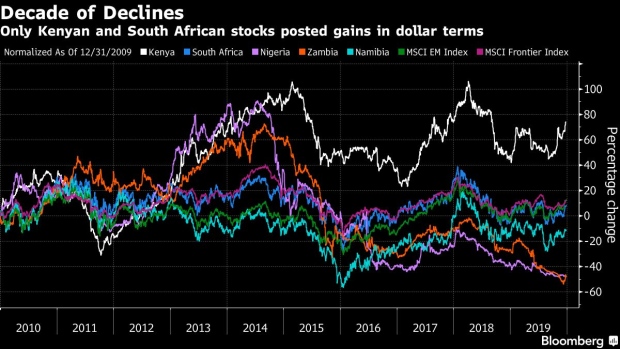Kafrican
JF-Expert Member
- Jan 26, 2015
- 7,212
- 6,972
Miaka ya 70's Serekali ya Kenya iliamua kuuza baadhi ya hisa za kampuni za kiserekali ambazo zilikua hazifanyi vizuri kama KQ ambapo ilifanyikiwa kuleta faida kwa Serekali kwa karibia miaka 20 kabla KQ kuanza kupata hasara kuanzia 2015 hadi sasa, jambo ambalo limefanya GoK kuamua kununua hisa zote ili kampuni hio irudi 100% mikononi mwa serekali. Huu si mfano mzuri...
Lakini mfano mzuri ni ule wa Telkom Kenya ambapo ilikua inamilikiwa 100% na serekali ya Kenya kabla serekali kuamua kuuza baadhi ya hisa kwa wawekezaji.... Baada ya hisa za Safaricom kununuliwa kwa wingi zaidi ya matarijio, ilisababisha mwamko mpya wa biashara na makampuni hapa Kenya, kila kampuni iliokua inatafuta hela za kupanua biashara ilikua inauza hisa kadhaa ili wapewe ufadhili.. Kampuni ya Safaricom ndo mlipakodi mkubwa zaidi hapa Kenya, Safaricom pale ilipofika ina thamani ya $11 Billion ! Sidhani kama kuna kampuni nyengine hapa Kenya inaifikia kwa thamani.
Kuna hii habari inasema labda tukiuza hisa za kampuni kadhaa za serekali tunaweza kupata Safaricom nyengine
---------------------------------------------------------------------------------
Kenya Needs Privatization to Spark Wave of IPOs
By
Eric Ombok
December 23, 2019, 2:41 PM GMT+3 Corrected December 24, 2019, 10:54 AM GMT+3
Delays in the privatization of state assets are holding up a potential flood of initial public offerings on the Nairobi Securities Exchange, according to Paul Muthaura, outgoing chief executive officer of the country’s Capital Markets Authority.
The East African nation’s last privatization was in 2008, when the government sold part of its stake in mobile phone company Safaricom Plc, according to data from the regulator. Plans by the government to sell stakes in each of five state-controlled sugar companies have been delayed since 2010, and the planned disposal of shares in eight hotels including the five-star Hotel Intercontinental Nairobi have also stalled. ( Sikujua Serekali ya Kenya ina miliki hisa ndani Intercontinental Hotel, Ndo maana marais, PM na wana diplomasia wengi hua wanalala hapo wakija ziara Kenya)
“When we talk to companies, there is actually no shortage of a pipeline of new listings but they are all waiting for the right time,” Muthaura said in an interview in the Kenyan capital, Nairobi. The regulator’s data indicate that each privatization tends to trigger three to six new listings, he said.
The last IPO by a Kenyan company on the NSE was Deacons East Africa Plc in 2016, according to data compiled by Bloomberg. While at least six companies have indicated since then that they’re planning share sales, none has materialized. Instead, a number of companies have delisted, including National Bank of Kenya Ltd., KenolKobil Plc, Access Kenya Ltd. and CMC Holdings Ltd.
The Kenyan exchange has 73 listed companies, with a combined market capitalization of about $23 billion. Muthaura, who joined the regulator 14 years ago and has served as legal head, director of regulation and strategy and chief executive, is stepping down on Dec. 31.
During Muthaura’s tenure as acting and later permanent CEO of the regulator from 2012, the Kenyan stock exchange was demutualized and it introduced new instruments and processes, including real-estate investment trusts, derivatives, exchange-traded funds, mobile-phone-based trading of treasury bonds, online forex trading, green bonds and short selling.
“Throughout the period, we had a core focus on driving market development and enforcement to support continuous market deepening and diversification,” Muthaura said. “Each of the different products were targeted as responding to a different kind of fundamental need.”
Initiatives in the works include depository notes, margin trading, a recovery board for companies that aren’t adhering to minimum-eligibility requirements or are technically insolvent, trading bonds in foreign currencies, and a commodities exchange.
The NSE All Share Index gained 0.7% on Monday to a six-week high, bringing its advance this year to 18%.

 www.bloomberg.com
www.bloomberg.com
Lakini mfano mzuri ni ule wa Telkom Kenya ambapo ilikua inamilikiwa 100% na serekali ya Kenya kabla serekali kuamua kuuza baadhi ya hisa kwa wawekezaji.... Baada ya hisa za Safaricom kununuliwa kwa wingi zaidi ya matarijio, ilisababisha mwamko mpya wa biashara na makampuni hapa Kenya, kila kampuni iliokua inatafuta hela za kupanua biashara ilikua inauza hisa kadhaa ili wapewe ufadhili.. Kampuni ya Safaricom ndo mlipakodi mkubwa zaidi hapa Kenya, Safaricom pale ilipofika ina thamani ya $11 Billion ! Sidhani kama kuna kampuni nyengine hapa Kenya inaifikia kwa thamani.
Kuna hii habari inasema labda tukiuza hisa za kampuni kadhaa za serekali tunaweza kupata Safaricom nyengine
---------------------------------------------------------------------------------
Kenya Needs Privatization to Spark Wave of IPOs
By
Eric Ombok
December 23, 2019, 2:41 PM GMT+3 Corrected December 24, 2019, 10:54 AM GMT+3
Delays in the privatization of state assets are holding up a potential flood of initial public offerings on the Nairobi Securities Exchange, according to Paul Muthaura, outgoing chief executive officer of the country’s Capital Markets Authority.
The East African nation’s last privatization was in 2008, when the government sold part of its stake in mobile phone company Safaricom Plc, according to data from the regulator. Plans by the government to sell stakes in each of five state-controlled sugar companies have been delayed since 2010, and the planned disposal of shares in eight hotels including the five-star Hotel Intercontinental Nairobi have also stalled. ( Sikujua Serekali ya Kenya ina miliki hisa ndani Intercontinental Hotel, Ndo maana marais, PM na wana diplomasia wengi hua wanalala hapo wakija ziara Kenya)
“When we talk to companies, there is actually no shortage of a pipeline of new listings but they are all waiting for the right time,” Muthaura said in an interview in the Kenyan capital, Nairobi. The regulator’s data indicate that each privatization tends to trigger three to six new listings, he said.
The last IPO by a Kenyan company on the NSE was Deacons East Africa Plc in 2016, according to data compiled by Bloomberg. While at least six companies have indicated since then that they’re planning share sales, none has materialized. Instead, a number of companies have delisted, including National Bank of Kenya Ltd., KenolKobil Plc, Access Kenya Ltd. and CMC Holdings Ltd.
The Kenyan exchange has 73 listed companies, with a combined market capitalization of about $23 billion. Muthaura, who joined the regulator 14 years ago and has served as legal head, director of regulation and strategy and chief executive, is stepping down on Dec. 31.
During Muthaura’s tenure as acting and later permanent CEO of the regulator from 2012, the Kenyan stock exchange was demutualized and it introduced new instruments and processes, including real-estate investment trusts, derivatives, exchange-traded funds, mobile-phone-based trading of treasury bonds, online forex trading, green bonds and short selling.
“Throughout the period, we had a core focus on driving market development and enforcement to support continuous market deepening and diversification,” Muthaura said. “Each of the different products were targeted as responding to a different kind of fundamental need.”
Initiatives in the works include depository notes, margin trading, a recovery board for companies that aren’t adhering to minimum-eligibility requirements or are technically insolvent, trading bonds in foreign currencies, and a commodities exchange.
The NSE All Share Index gained 0.7% on Monday to a six-week high, bringing its advance this year to 18%.

Kenya Needs Privatization to Spark Wave of IPOs
Delays in the privatization of state assets are holding up a potential flood of initial public offerings on the Nairobi Securities Exchange, according to Paul Muthaura, outgoing chief executive officer of the country’s Capital Markets Authority.

